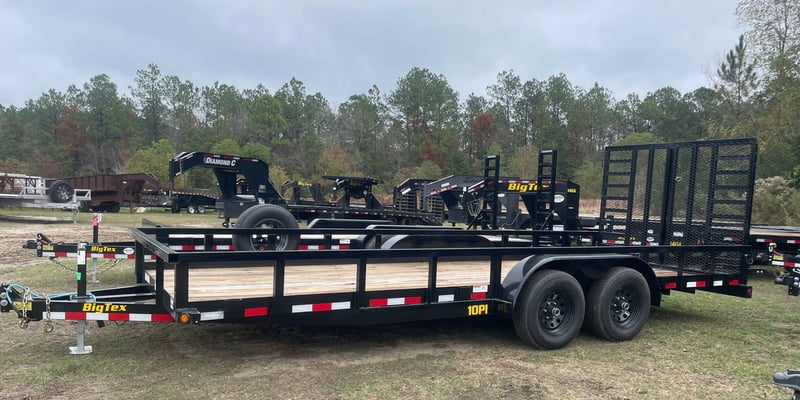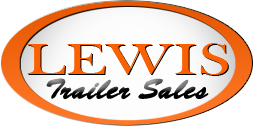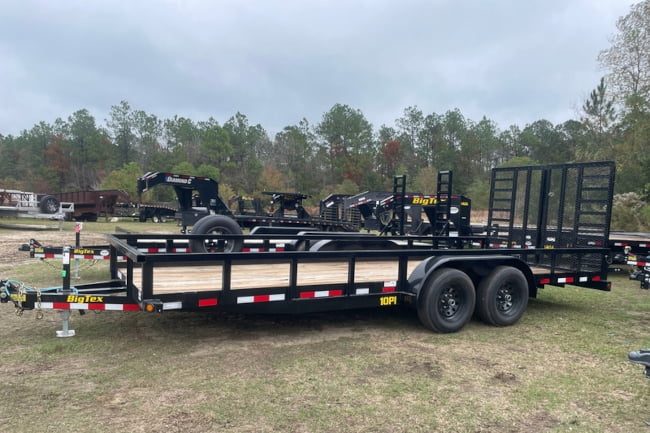Home » Trailers 101: A Beginner’s Cheat Sheet for Trailer Basics
If you’re new to the world of trailers, there are a lot of terms, types, and specifications to learn. Our team at Lewis Trailers has been in the industry for 50 years, and we’re here to help. Here’s a beginner’s cheat sheet for trailer basics.

Trailer Types
- Utility Trailers – Usually what comes to mind when you picture a basic trailer, utility trailers have open, flat platforms with railing around the sides. These trailers are used for a variety of hauls, from landscaping equipment to furniture.
- Cargo Trailers – Referring to any enclosed trailer, cargo trailers protect hauls from the elements and are often used for moving house or as protected storage.
- Flatbed Trailers – With a flat platform and no sides, flatbed trailers are used for irregularly shaped or oversized objects.
- Specialty Trailers – There are many other trailer types designed for specific purposes. From hauling cars to livestock to having special features like goosenecks and tilt decks, you can find the perfect trailer tailored to your needs.
Trailer Parts
- Bed – The bottom platform makes up the primary surface of the trailer. Beds can be wooden or metal.
- Axle – Often the most complex part of the trailer, the axle allows the trailer wheels to turn and houses the trailer’s suspension.
- Tongue – The front part of the trailer frame with the vehicle-connecting elements. It’s often either an A-frame or single-beam shape.
- Jack – A retractable leg mounted on the tongue that allows the coupler to be raised or lowered.
- Coupler – The part of the tongue that connects the trailer to the vehicle.
Trailer Loads
- Gross Value Weight Rating (GVWR) – This refers to the maximum weight the trailer can carry. It’s crucial to ensure your towing vehicle has or exceeds the trailer’s towing capacity.
- Tongue Weight – This is the amount of force the trailer tongue needs to put on the vehicle’s hitch to keep the trailer-vehicle connection balanced and stable. Always make sure you have the proper tongue weight before you set off.

